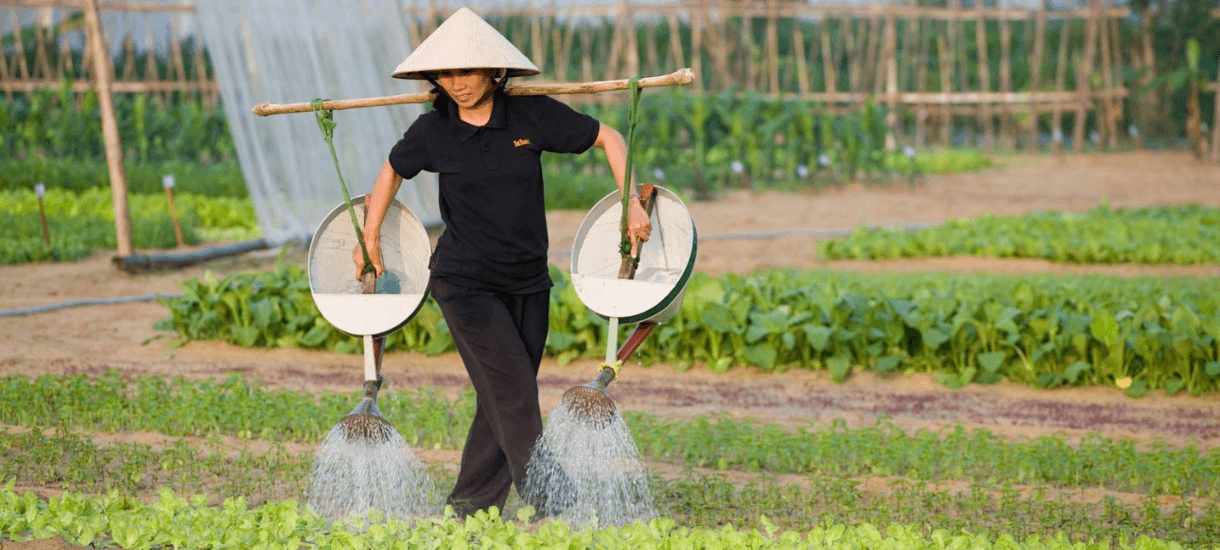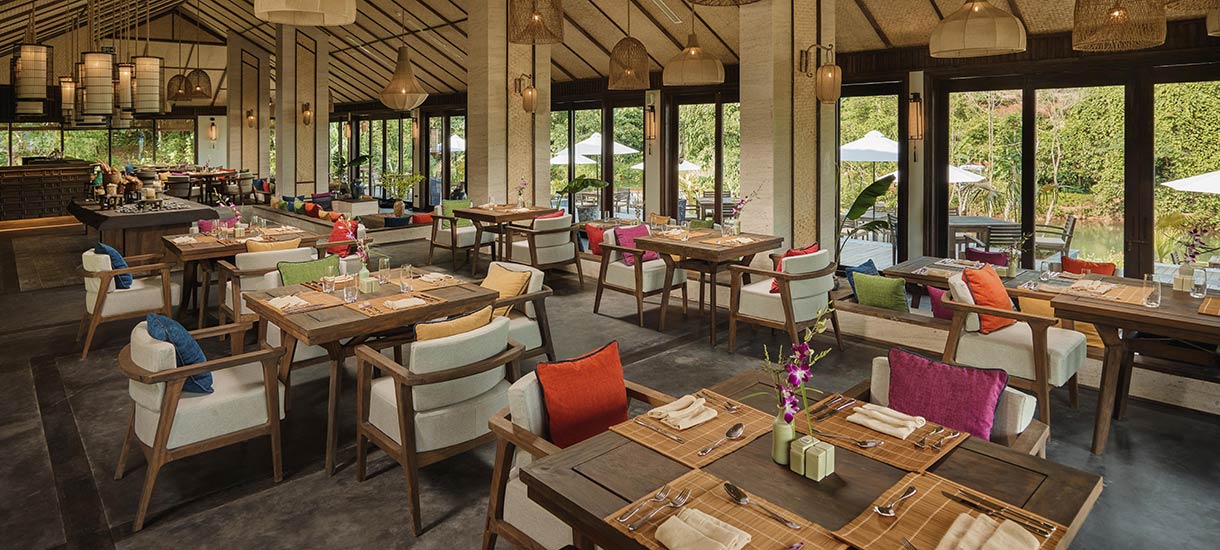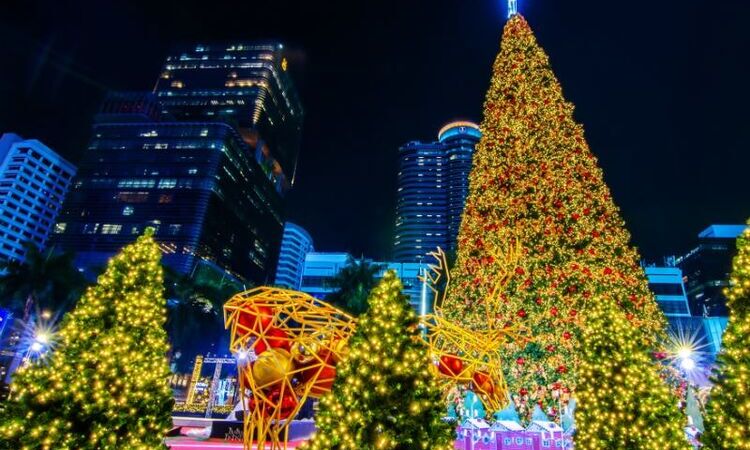6 Best Eco-tourism Experiences for a Sustainable Vietnam Trip
These sustainable Vietnam eco-travel experiences showcase and preserve the natural beauty and traditional cultures of Vietnam.
During our era of climate change, many travelers are becoming more eco-conscious, looking for ways to reduce their carbon footprints while experiencing what the world has to offer.
Travel in Vietnam is a wonderful option if you want to experience a sustainable, green vacation. Whether you are seeking an outdoor adventure or you want to kick back and relax at a resort, the ideal ecotourism experience in Vietnam is waiting for you.
Why is Vietnam Ideal for Eco-Friendly Travel?
Abundant natural resources
In Vietnam, numerous breathtaking natural destinations await you. There are mountains to climb, beaches to relax on, valleys and highlands to hike through, and forests teeming with biodiversity that will astonish you.

While there are a lot of parts of Asia that are highly developed, Vietnam features unspoiled landscapes. Explore the caves of the Trang An Complex, the mountainous region in the Northern loop, the Mekong Delta area, or the beaches of Cham Island.
You might also venture to Cúc Phương National Park, Yok Đôn National Park, Cát Tiên National Park, and other national parks and nature preserves throughout Vietnam. Each one features distinctive landscapes and unique flora and fauna.
Cultural diversity
The rich cultural diversity of Vietnam helps to promote ongoing innovation and keep conversations going about how we can create a greener future within the country and beyond its borders.
Additionally, Vietnam is home to many traditional cultures that have maintained their ways of life for centuries. These villagers live in harmony with the land, practicing sustainable agriculture, fishing, and handcrafting. Even as our world continues its march into the future, we have a lot to learn from these traditional societies.
While you are visiting Vietnam, you will have a chance to meet these villagers and discover their ways of life firsthand.

Eco-friendly accommodations
Hospitality companies in Vietnam are aware of the demand for eco-tourism in their country. To answer that demand, accommodations have sprung up which follow sustainable practices. At these lodgings, travelers can enjoy guilt-free comfort and luxury.

Sustainable activities
There are many sustainable activities visitors can participate in when touring Vietnam, like hiking, paddling and more. So long as tourists are respectful of the natural environments and traditional communities in which they find themselves, activities like these do no harm to the environment.

In some cases, some of the money spent on eco-friendly activities may even be donated directly to sustainable causes. If you can find these opportunities, that is a way to give back and support the environment while you are touring Vietnam.
Top Ecotourism Experiences in Vietnam
1. Trekking in Mai Chau
Hiking the Mai Chau area, you will get to enjoy picturesque views of fields, bamboo forests and mountains, and explore small, peaceful agricultural villages.
Although Mai Chau is close enough to Hanoi to be easy to reach, it is not overrun with tourists. It remains rural and undeveloped, preserving nature and the communities that flourish here.
The eco-friendly resort Avana Retreat operates a few compelling mountain trekking experiences in Mai Chau. On their treks, you will be able to look out over Thai villages from mountaintops, watch farmers at work in the rice paddies, cross over a picturesque hanging bridge, and explore Hmong Village.

2. Paddling a Boat in Trang An Ecotourism Complex
Trang An is one of the most remarkable areas in Vietnam. When you visit, you will quickly understand why it is referred to as an “ecotourism complex.” The landscape is dominated by towering limestone formations. These rock faces appear lush rather than stark, covered by deep green vegetation.

One of the most eco-friendly and enjoyable ways to experience Trang An’s magical landscape is to paddle a boat down the river. Tourists can rent a boat from roughly dawn until dusk, and head out on a route with a guide that will last for several hours.
Depending on the route you choose, your boat tour will take you through mysterious caves and past picturesque lily pads. You may stop off at intervals to explore temples that dot the landscape.
One thing you will notice as you are on the river is just how quiet and peaceful it is. And what is great about paddling as opposed to driving is that you are helping to preserve that peace. Boats do not pollute, and leave plants and animals along the river banks undisturbed.
3. Hiking Inside Cuc Phuong National Park

Southwest of Hanoi is Cuc Phuong National Park, Vietnam’s oldest national park. Hiking through this park gives visitors a chance to spot hundreds of species of mammals, reptiles, birds and amphibians, some of which are rare.
The best time of year to visit the forests and mountains of Cuc Phuong National Park is in April or May. This is when butterflies emerge from their crystallizes by the thousands, flitting on colorful wings.
Cuc Phuong National Park is also fascinating from an archaeological and anthropological standpoint. People have lived in this area for at least 7,000 to 12,000 years. Prehistoric remains of humans and animals along with ancient artifacts have been discovered in the park.
The park is still inhabited by human beings to this day, specifically members of the Muong ethnic group. While you are on the outskirts of the park, you will be able to catch glimpses of their villages.
4. Visit Tra Que Vegetable Village
Just northwest of Hoi An City in Cam Ha Commune, is Tra Que Vegetable Village. This remarkable village is named for the produce that is grown there: lettuce, basil, knotweed, houttuynia, and other vegetables and herbs.

Setting aside a day of your Vietnam vacation to experience Tra Que Vegetable Village is a must if you have an interest in sustainable agricultural practices. The farmers at this village use a combination of crop rotation and intercropping to yield over 20 types of produce. Their time-honored techniques have helped them to farm successfully for the past three centuries, drawing water from De Vong River to keep their soil moist and productive.
Another body of water that plays a key role in the village’s sustainable agriculture is Tra Que Alga Pond. This pond produces a special type of algae that can be used in place of chemical fertilizers.
5. Paddling Through Cam Thanh Coconut Village and Fishing
Several kilometres southeast of Hoi An old town, Cam Thanh Village and its expansive Bay Mau palm forest offer another draw to sustainably-minded travelers looking for eco travel in Vietnam.

When you arrive at the village, you will be able to discover the traditional ways of the villagers firsthand. You will get to watch as local fishermen use pulleys to cast nets to catch crabs, then paddle in basket boats to get their catches. In fact, you will be able to ride along and even attempt paddling. Vietnamese basket boats are notoriously easy to tip over, so it can be more of a challenge than you might expect. Don’t be surprised if you get wet.
These basket boats are not the only amazing things the villagers craft; they also make a wide variety of artisan crafts using wood from their palm forest. So, be sure to shop for some souvenirs before you go.
6. Staying at Eco-Friendly Retreats
Finally, Vietnam eco travel doesn’t just span the activities you participate in and the destinations you choose to explore. It can also encompass where you stay. Vietnam features a number of eco-friendly retreats.
One option is Topas Ecolodge, which you will find in the Sapa region. This resort offers astonishing views of Hoang Lien National Park, the Tonkinese Alps, and lower Sapa valley. Putting the “eco” in “Ecolodge” are the bungalows, all made from local materials that were sustainably harvested.

Another option is Avana Retreat in Mai Chau, which we mentioned earlier. If you were impressed by the views from Ecolodge, you will be blown away by those from Avana. You’ll be able to look out from your room directly over the mountains and rice paddies. At Avana’s Green Chili Restaurant and Cloud Pool Bar, travelers can partake of cuisine made using organic, seasonal, sustainably-harvested local ingredients.
For a sustainable seaside haven, book a stay at Six Senses Ninh Van Bay in Khanh Hoa. Since you can only reach this resort by boat, it is the very definition of seclusion. Six Senses has its very own solar farm with an organic garden. The company that runs the resort also has distributed reusable water bottles, removed trash from beaches, and more.

Another recommendation for an eco-friendly stay in Vietnam is a reservation at Amanoi Vinh Hy in Ninh Thuan. At this resort, you can eat food that has been locally harvested or participate in activities focused around preserving and celebrating the culture of the Cham people. Like Six Senses, Amanoi also contributes to efforts to clear the local area of litter. Discover more eco-friendly lodgings in Vietnam.




